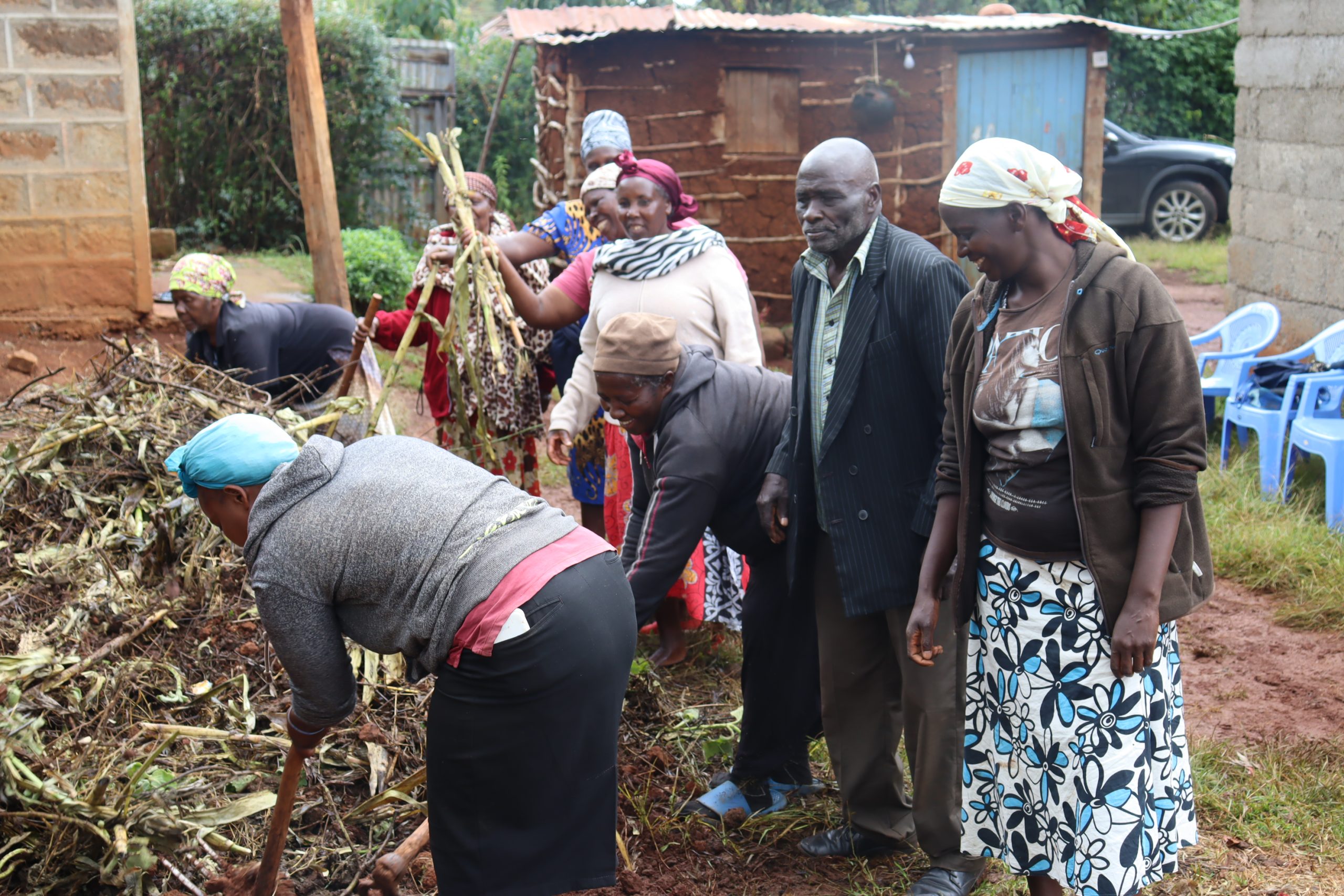Project Description
Farm training
Climate safe farm training for sustainability
Climate safe farm training and sustainability is essential if a community is to live independently. In partnership with the community, parents learn practical conservation farming. This facilitates the provision of sustainable school meals as the community take over responsibility for the school meals over a period of years.
Our staff in Kenya work with the school children and teachers on practical farming lessons and care of the soil. Each class of children has a plot in the school grounds. They are responsible for preparing the plot, sowing the seeds, keeping it weed free, watering, observing for bugs or disease and then harvest.
“Seeing is believing” so we always aim to have a demonstration plot to compare conventional with conservation methods and outcomes. We have learned that those who implement the conservation farming methods will be seen by neighbours. This is such a good way to win over the doubters. When the quality and yield improve, everyone one wants to know how they can get those results.
Agricultural development
Agricultural development focuses on strengthening the capacity of local farmers, particularly of parents at the schools we partner with. By the development and introduction of improved techniques, increased production and incomes are expected. The techniques relate mainly to conservation agriculture (CA) which conserves and enhances soil fertility by the use of mulch and avoidance of deep ploughing.
These techniques have been successfully introduced elsewhere in Kenya and other African countries, such as Zimbabwe and Mozambique. The CA principles can also be applied to livestock development and agro-processing. These activities enable parents to increase their agricultural surpluses and incomes. In turn the additional resources can be used to provide or fund the school meals programme thus strengthening sustainability.
A taster of the principles
Specifically the agricultural development principles include: –
- minimal soil disturbance > avoid deep ploughing; use zero or minimal tillage
- maintain maximum soil cover > avoid burning; use crop residues as mulch; use manure and composting
- practice rotation with legumes when possible > improves soil structure and nutrient status; breaks pest and disease cycles
Conservation farm training for sustainability becomes a reality when people see good results for themselves!
Climate change brings huge challenges to food production for rural populations. Training parents in conservation agriculture provides them with opportunities to live more sustainably.


